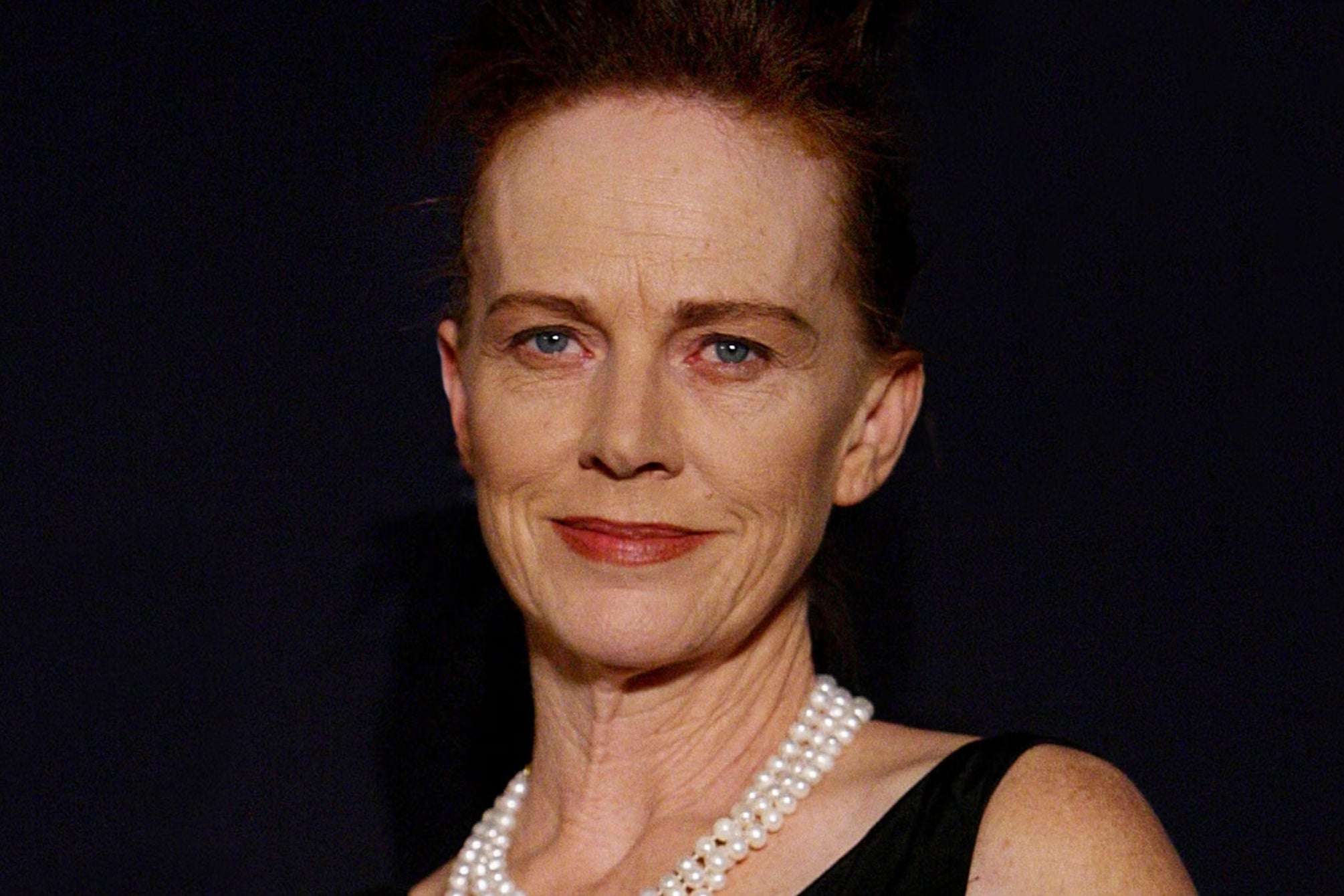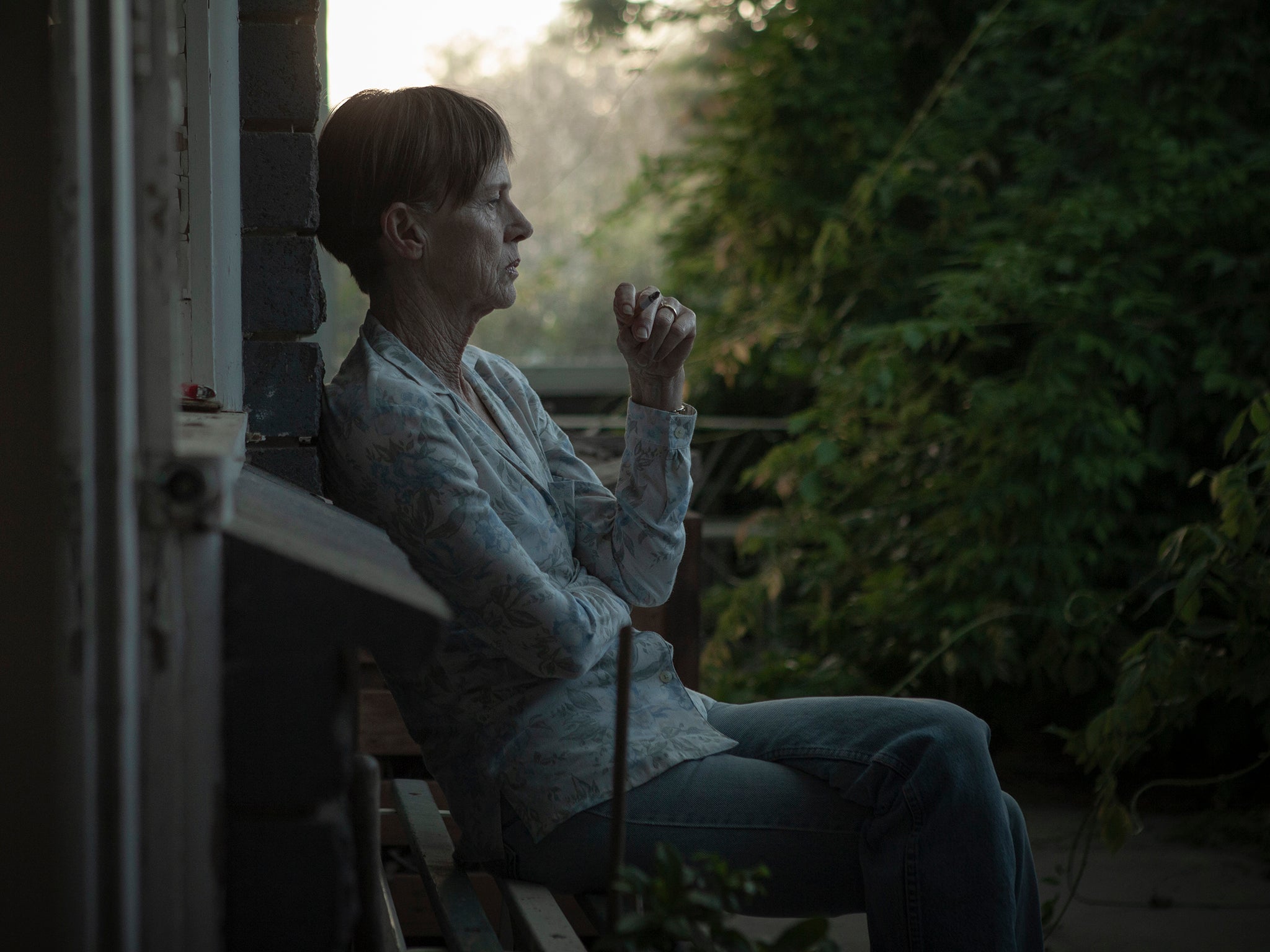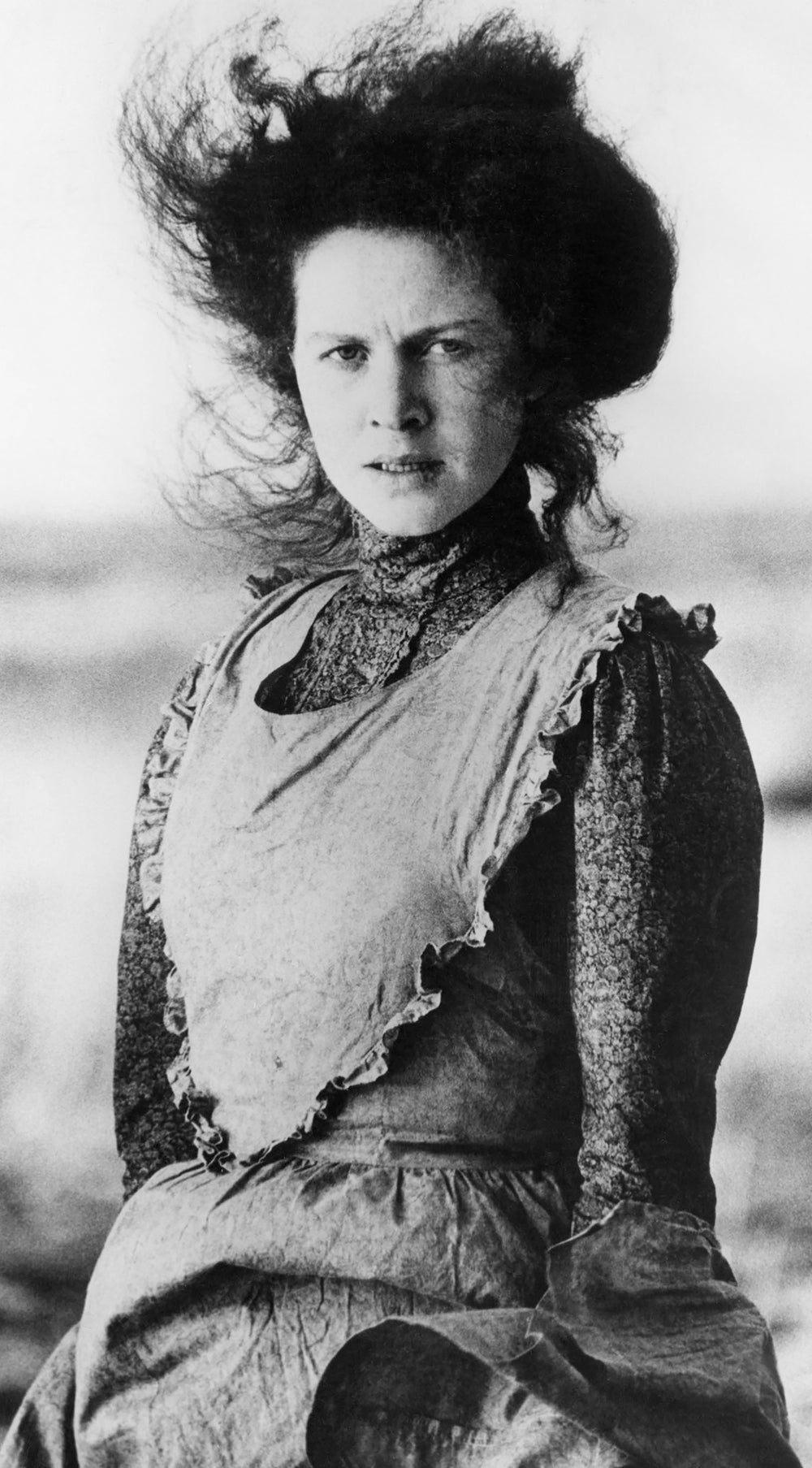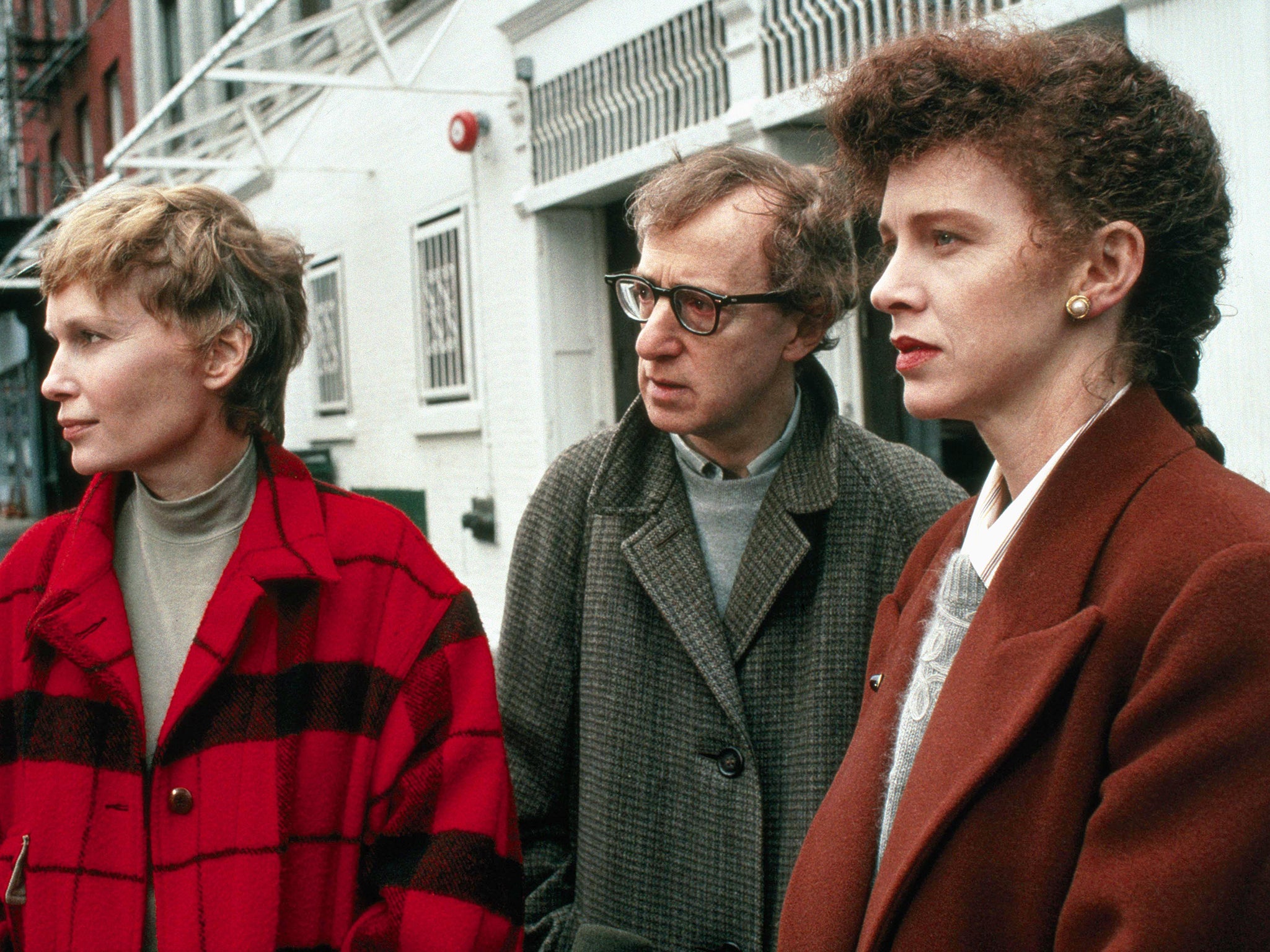Judy Davis: ‘My honesty has definitely got me in trouble’
The Australian powerhouse, who stars in the disquieting new film ‘Nitram’, speaks to Adam White about rarely giving interviews, what really happened on the set of River Phoenix’s final film, and why allegations against her frequent collaborator Woody Allen should be tested in a court of law and not social media


You don’t speak about Judy Davis casually. You speak her name with reverence, awe, and mild terror. Like Isabelle Huppert, Julie Christie or Charlotte Rampling, she is an actor worshipped by other actors, a titan of the form, and a heavyweight with few comparable peers. Tech-savvy, though, she is not. Today, the 67-year-old Oscar nominee is struggling with Zoom.
“Hmm,” comes a disembodied voice. “I wonder what I should dooo.” The Australian star, whose influence on a generation of Aussies from Nicole Kidman to Cate Blanchett only matches the lore that surrounds her, draws out her vowels and can’t help but command an audience. “Charlotte!” she calls out, “can you help me, please? I’m already stuffing this up.” She can’t turn on her camera. There is a dramatic sigh, the pitter-patter of feet, a running commentary of embarrassed exasperations. Davis’s daughter can be heard. There is a click. A thank you. Finally, she’s there. Davis is dressed in black and sporting dark spectacles. Her lips are painted deep rouge, and stalks of brown hair poke up from under a headband. “Sorry,” she winces. “You now know an awful lot about me.”
In the traditional sense of knowing someone, difficulty with technology isn’t particularly revealing. But for Davis, getting anything at all from her feels like a victory. Red carpet appearances are rare. Interviews are even rarer, potentially because they don’t tend to go very well. But we’ll get to that. Her credits include David Cronenberg’s Naked Lunch, Sofia Coppola’s Marie Antoinette and the Coen brothers’ Barton Fink, all of which immortalised her as a pillar of haughty neuroses and fierce glamour. On television, she seems to only play powerhouses: Judy Garland, Nancy Reagan, Lillian Hellman. There’s been a Bafta – for her star-making turn in the period drama My Brilliant Career (1979) – and 12 Emmy nods. For David Lean’s A Passage to India and 1992’s Husbands and Wives, her second of five collaborations with Woody Allen, she scored Oscar nominations. Pauline Kael, that most revered of film critics, once called her “a genius at moods”.
She’s calling from her Sydney home as she’s especially proud of her new film: director Justin Kurzel’s brilliant, disquieting Nitram. Its origins are rooted in one of the country’s great tragedies: the 1996 Port Arthur massacre, in which an intellectually disabled young man named Martin Bryant murdered 35 people. It remains Australia’s worst mass shooting in modern history, and essentially the country’s Dunblane – an act of brutal violence that transformed a nation’s relationship to guns. Strict laws were implemented within months, though Australian gun ownership has risen again in recent years.
Nitram both recreates and distances itself from the Bryant story. Caleb Landry Jones’s lead character is only referred to – and sparingly, at that – as “Nitram”, or “Martin” backwards. Scenes of gun violence take place off-screen. No judgements are made. Davis plays Nitram’s mother, a woman who hovers around the family home like a ghost. Whenever Nitram behaves oddly or violently, she freezes, her expression hauntingly blank. “Just because I don’t cry doesn’t mean I’m not hurting,” she tells Nitram at one point, about just one of a number of horrors that befall them.
Davis read countless books about Bryant’s mother, who has retreated from public life in the wake of her son’s imprisonment. “When [Martin] was a baby, she had a lot of trouble bonding with him,” Davis recalls. “In fact, she was working at the Cadbury’s factory in Tasmania all through the pregnancy and nobody noticed. It was almost like a phantom pregnancy, or a phantom baby. Not quite real. That’s when my imagination started to go.” She had some fears going into the film, namely that the audience’s blame would be placed on her character’s parenting. “I was very concerned about that. The mother is alive and well, and I don’t think she needs any more grief than what she’s had already. I felt I had a responsibility to her.”

She is, unsurprisingly, spectacular in the film – guarded, shellshocked, at the end of her tether. Davis plays her as if she hasn’t slept in years. It’s a performance that has already earned plaudits, and from familiar places. When Davis won the Best Actress gong at December’s Aacta awards – or the Australian Oscars – she was handed it by Sam Neill, her co-star in My Brilliant Career. Adapted from the celebrated 1901 novel by Miles Franklin and directed by Gillian Armstrong, the film cast Davis as a frizzy-haired free spirit named Sybylla, who dreams of being a writer. Think of it as Little Women Down Under, with Sybylla fending off suitors and determined to build a life for herself on her own terms. But despite the accolades it drew, the film isn’t one of Davis’s favourites.
“That has been well-documented – in fact, by me,” she laughs. She remembers doing press for the film in San Francisco upon its release. A journalist asked her, quite innocuously, what she thought of it. “Now I was brought up Catholic, and I felt that pull,” she says. “I thought… I can’t lie to her!” She shifts towards her camera lens, lowering her voice to a gossipy whisper. “I said, ‘I don’t think it’s very good. I think it was the script’. You can imagine how that went down.”
Has that kind of honesty been a problem since? “It’s definitely got me in trouble occasionally. That was probably the worst example of my stupidity. Utter stupidity! I was very young, and [filming] wasn’t a happy experience, anyway. Not that it was revenge. But when God said, ‘Judy, tell the truth!’ and the other God said, ‘I don’t know if I’d advise that’ – I went with the first one.” Even today, she’s not the film’s biggest fan. “I still don’t get it. I found that whole story quite troublingly trite.” I say that it’s definitely twee. “Twee. Trite. What else starts with a ‘t’ that we can use? Oh god, here I go trashing it again.”

Her problems with it do make sense. She says she was 23 at the time of production, and a child of the Sixties and Seventies. “It didn’t speak to me and my world,” she remembers. “For reasons that always have baffled me, some people – women, I guess, feminists – found it said something worthwhile? I respect that, absolutely. I just didn’t get it myself. The whole dilemma of choosing a man or choosing a career – for my generation, I didn’t feel that was a thing any more. It certainly was for my mother. And I guess back when [the book] was written. I suppose they thought they were dealing with a feminist issue [when the film was made], too. But it just didn’t strike me in that way.” She shrugs. “Maybe I was just a weirdo?”
In conversation with Davis, I’m not surprised by her candour. But I am surprised by her droll sense of humour, as well as the ease with which she’s happy to chat. Mainly because she’s not known for it, if past interviews are anything to go by. She is “formidable”. She is “intense”. She “doesn’t suffer fools gladly”. In her work, her clashes with Lean and Armstrong are legendary. (She and Armstrong, at least, made up – their My Brilliant Career follow-up, High Tide, in which Davis plays an alcoholic back-up singer attempting to reunite with her daughter, is also a far better movie.)
Elsewhere, rumours have always circulated that she was “difficult” on the set of Dark Blood, a not very good marital thriller only remembered for being River Phoenix’s last film. Or, to be more specific, the film he’d shot only 80 per cent of when he died of a drug overdose in 1993. A watchable if rickety cut was finally released in 2012. Dark Blood’s late director, George Sluizer, would often lambast Davis in the wake of production. “She was a bitch,” he reportedly said during a live Q&A in 2012. “I won’t allow anyone to speak against her talent as an actress. But if we’re talking about her qualities as a human, I advise everyone to keep far away from her.”
Today, Davis says, there was a lot more to the story than Sluizer let on. She’d desperately wanted to get out of making the film. Months earlier, though, Kim Basinger had dropped out of the thriller Boxing Helena and was sued for doing so, ultimately leaving her $3.8m poorer. Davis’s terrified agents convinced her to stick it out to be safe. “A couple of things that the director said to me had alarmed me,” Davis remembers. One of them, she says with a laugh, concerned breasts.
Have I said anything that I could be sued for at this point?
“Breasts featured very heavily in the imagery of that film. [Phoenix’s character] looked to a hill, and it looked like a woman’s breast.” When she and Sluizer were first discussing the script, Davis queried it all. “So… the breasts,” she told him. “I think you might need to get rid of that imagery, because I basically don’t have any breasts. If you’re trying to create a connection between the landscape and me… it’s not gonna work. And as a joke, I said, ‘It’s a pity you can’t just, you know, artificially pump up breasts.’” A couple of months passed. Sluizer rang Davis up. “He said he’d been talking to a friend, who said that actually there was a way to temporarily pump up breasts.” Davis’s expression curdles. He was deathly serious. “So I thought, I need to get out of this film, because I think this guy’s a bit of a lunatic… which he was.” She suddenly looks concerned. “In my opinion! Have I said anything that I could be sued for at this point?”
As for her co-star… “River was fine,” she says, hesitantly. “But he came in one morning a bit dopey and said that he’d had too much sodium the night before. And I really know nothing about drugs. So I thought, oh, I guess sodium is salt? Huh. That’s weird.” She goes quiet. “Anyway, I mean, this could be a five-hour conversation. But it was a troubled film.” So troubled, in fact, that it briefly made her question her entire vocation. She remembers chastising herself for not listening to her instincts. “‘No, no, you fool! Don’t miss the signs, keep away!’” she yelps.“ But that’s in me, you know? I’ve done a few things like that, where I’ve thought, ‘Why do I do this job? This is a s****y job. There’s nothing good about this at all.’”

While we’re on the subject of directors, Davis has made five films with Woody Allen, ones that run the gamut from his classics (Husbands and Wives) to his nicely mid-range ones (Alice, Deconstructing Harry) to his barrel-scrapers (Celebrity, To Rome with Love). The last few years have led to a reckoning of his work and his private life, with his adoptive daughter Dylan Farrow accusing Allen of sexually abusing her as a child. Allen has vigorously denied the allegation. A number of actors, though – including Mira Sorvino, Drew Barrymore and Timothee Chalamet – have since expressed regrets about working with him.
“Not everyone has done that,” Davis says. No, not at all, I reply. But a handful, at least. Does she understand why they would? “I don’t judge people for what they decide to do in a situation like that,” she says. “With tremendous pressure, and all this f***ing social media stuff. I don’t judge them at all. My position is these things can be tested in a court of law. And that’s the place for it. It’s not the place to destroy people on social media or whatever biased documentaries might be made. It’s – I’m sure – a very complicated situation in that family.”
We return to Nitram. It’s Davis’s first film in more than five years. What convinced her to take that leap again? “The director,” she says. “Justin’s intentions. He wanted to remind Australians that gun ownership is very much on the increase. That [violence] is an ever-present danger. And that we need laws to protect ourselves from ourselves.” She has great respect for Kurzel. “He’s a talent to be reckoned with. He doesn’t like compromise. He wants what he wants. And he’ll go to great lengths to get it, which is great. And kind of unusual, really.” Does he remind her of herself? “Oh, I think he’s much more intense than I am.”
I actually believe her. Despite all of the stories.
‘Nitram’ is in cinemas now
Join our commenting forum
Join thought-provoking conversations, follow other Independent readers and see their replies
Comments


Bookmark popover
Removed from bookmarks